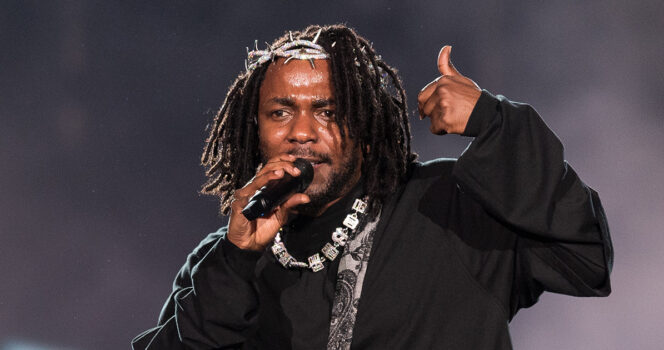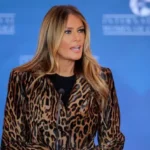Super Bowl LIX: Kendrick Lamar Set to Headline Halftime Show Amid Mixed Reactions
The countdown to Super Bowl LIX is officially on, and while fans are gearing up for the highly anticipated showdown between the Philadelphia Eagles and the Kansas City Chiefs at the Caesars Superdome in New Orleans, the halftime performance is stealing the spotlight.
This year, the honor of headlining the iconic show goes to Kendrick Lamar, a lyricist often hailed as one of the greatest rappers of all time.
A Moment in the Spotlight for Kendrick Lamar
Lamar, known for his sharp lyricism and socially conscious music, is no stranger to the Super Bowl stage. Back in 2022, he made a guest appearance in the star-studded halftime show featuring Dr. Dre, Snoop Dogg, Eminem, and Mary J. Blige. However, this time, the spotlight is entirely on him.
The news of his selection was unveiled in September 2024 via an Apple Music teaser. The black-and-white clip featured Lamar walking across a vast football field, casually remarking, “This field a lot bigger than what it looks.” The biggest surprise? Grammy-winning artist SZA will be joining him for what promises to be an unforgettable performance.
Fans React: Excitement and Criticism Collide

Lamar’s halftime show announcement has sparked a whirlwind of reactions online. While many praised the choice, others voiced their discontent.
“Kendrick is a legend—he deserves this,” one fan commented. Another added, “I knew back in 2016 that Kendrick was the GOAT, and he’s only proved me right every step of the way.”
However, not everyone shares the enthusiasm. Some social media users expressed indifference, with one person saying, “I mean, it’s okay. I don’t watch football, so I don’t really care. He’s better than some other choices, I guess.”
Others criticized Lamar’s live performances, arguing that his delivery doesn’t always match his studio recordings. “Love his music, but his live shows never really hit the same,” one critic wrote.
For some, the issue lies in the NFL’s repeated focus on hip-hop for the halftime show. “Why does he get to perform twice?” a fan questioned. Another bluntly stated, “Tired of rap at the Super Bowl. Can we get some variety?”
One particularly disappointed viewer even declared, “This will be the first halftime show I don’t bother watching. Not a Kendrick fan at all.”
New Orleans’ Musical Legacy Takes Center Stage
While not everyone is thrilled about Lamar’s selection, the NFL is ensuring that Louisiana’s rich musical history is honored during the event.
Jon Batiste, a New Orleans-born jazz musician, will take on the national anthem. “I want to create an arrangement that stands the test of time,” Batiste shared.
Christian singer Lauren Daigle and jazz artist Trombone Shorty will team up for a performance of America the Beautiful, while R&B powerhouse Ledisi will deliver Lift Every Voice and Sing.
Lil Wayne’s Disappointment Over Halftime Snub
One of the most unexpected reactions came from Louisiana’s own rap legend, Lil Wayne. Many fans had speculated that he would be chosen to represent his home state on the Super Bowl stage, and as it turns out, Wayne had the same hopes.
In a candid Instagram video, the Lollipop rapper opened up about his disappointment.
“I blame myself for getting my hopes up. Nobody promised me that spot, but I thought, man, what would be better than performing on that stage in my own city?” Wayne said.
Did Kendrick Address Wayne’s Feelings in His Music?

Although Lamar has remained silent on the matter, fans believe he might have responded through his music. On November 22, he dropped his surprise album GNX, featuring the track Wacced Out Murals. One line in particular caught attention:
“Used to bump Tha Carter III, I held my Rollie chain proud / Irony, I think my hard work let Lil Wayne down / Whatever though, call me crazy, everybody questionable.”
Was this Lamar’s way of acknowledging Wayne’s disappointment? Fans seem to think so.
Will Lamar Take a Shot at Drake During the Super Bowl?
As if the halftime show didn’t have enough buzz, rumors are swirling that Lamar might use his performance to reignite his feud with Drake. According to The U.S. Sun, there’s speculation that Lamar will perform Not Like Us, a track widely believed to be a diss aimed at the Canadian rapper.
Given that there are no legal barriers preventing Lamar from performing the song, it’s entirely possible that the world will witness another chapter in their long-standing rivalry play out on one of the biggest stages in entertainment.
Their tension dates back over a decade, with Lamar first taking lyrical jabs at Drake in his 2013 verse on Control. Since then, both artists have exchanged subtle shots, with Drake often downplaying the rivalry in interviews.
Mark Your Calendars: Super Bowl LIX Is Almost Here

As February 9, 2025, approaches, the excitement surrounding Super Bowl LIX continues to build. Whether you’re tuning in for the game, the halftime show, or just the spectacle, there’s no doubt this year’s event will be one to remember.
Super Bowl LIX will be available for streaming across multiple platforms, including Fox Sports (via the iOS and Android app), Tubi, FoxSports.com, NFL+, Hulu + Live TV, YouTube TV, FuboTV, and Sling TV.
Now, the big question—are you looking forward to Kendrick Lamar’s performance, or would you have preferred someone else? Let us know your thoughts!










